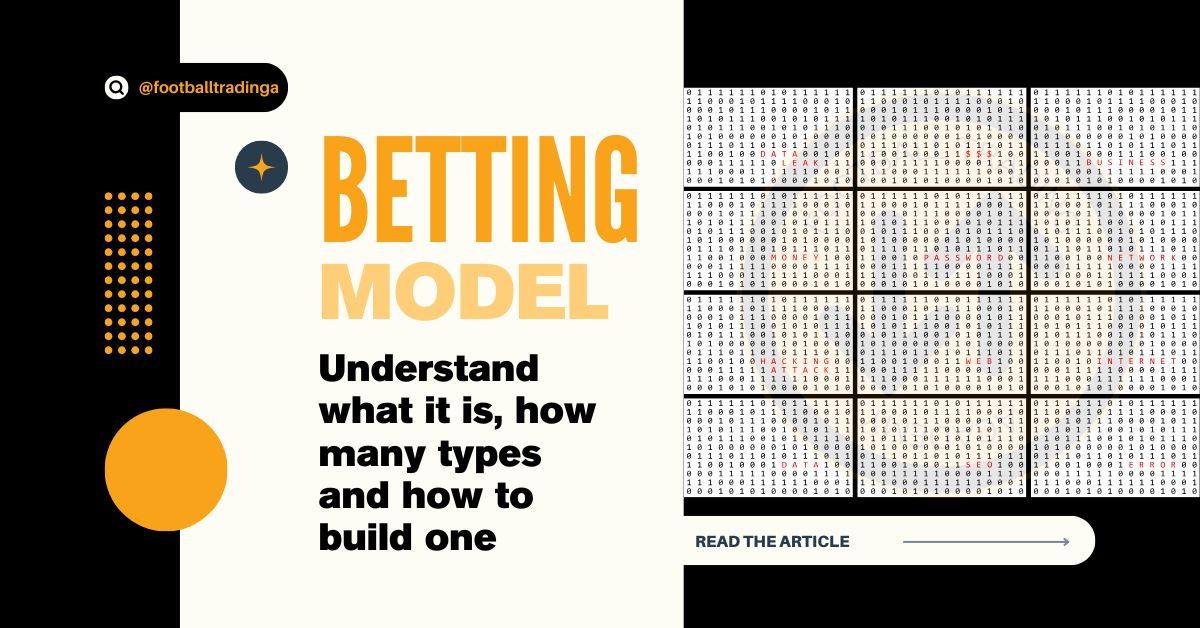A sports betting model is a systematic approach that uses data analysis and statistical algorithms to predict the outcomes of sporting events. By analyzing historical data and relevant variables, these models aim to provide bettors with objective insights, helping them make informed decisions and identify value bets—situations where the bettor’s estimated probability differs from the bookmaker’s odds.
Understanding Sports Betting Models
At its core, a sports betting model estimates the probabilities of various outcomes in a sporting event. By inputting factors such as team performance, player statistics, and other relevant data, the model calculates the likelihood of specific results. This approach removes personal biases and relies on quantitative analysis to guide betting decisions.
Types of Sports Betting Models
There are several types of sports betting models, each varying in complexity and methodology:
Statistical Models: These models utilize statistical techniques to analyze historical data and identify patterns that may influence future outcomes. For example, a regression analysis might assess the relationship between a team’s past performance metrics and their likelihood of winning upcoming games.
Machine Learning Models: Leveraging algorithms that can learn from data, these models adapt and improve their predictions over time. Techniques such as neural networks or decision trees can process vast amounts of information to uncover complex relationships between variables.
Simulation Models: Also known as Monte Carlo simulations, these models run numerous simulations of a game to estimate the probability of various outcomes. By simulating a match thousands of times, they provide a distribution of possible results, helping bettors understand the range of potential outcomes.
Simple Examples
Poisson Distribution Model: This statistical model is commonly used to predict the number of goals in football (soccer) matches. By analyzing the average number of goals scored and conceded by teams, the Poisson distribution estimates the probability of different scorelines.
Elo Ratings: Originally developed for chess, Elo ratings have been adapted to various sports to rank teams or players. The system calculates the relative skill levels of competitors based on game results, adjusting ratings after each match to predict future performance.
Neural Network Models: Advanced machine learning models, such as neural networks, can analyze complex patterns in data. For instance, a neural network might process player performance metrics, team dynamics, and other variables to predict match outcomes.
Building a Sports Betting Model
Creating an effective sports betting model involves several key steps:
Data Collection: Gather comprehensive historical data relevant to the sport, including team statistics, player performance, and other pertinent variables.
Data Analysis: Clean and analyze the data to identify patterns or trends that could inform predictions.
Model Selection: Choose an appropriate modeling technique, such as regression analysis, machine learning algorithms, or simulations, based on the complexity and nature of the data.
Validation and Testing: Test the model against historical data to assess its accuracy and refine it as necessary.
Implementation: Apply the model to upcoming events to generate predictions and guide betting decisions.
Conclusion
Sports betting models offer a structured and data-driven approach to predicting the outcomes of sporting events. By systematically analyzing relevant data, these models aim to provide bettors with objective insights, enhancing their ability to identify value bets and make informed decisions. However, it’s essential to recognize that no model can guarantee success; they should be used as tools to inform strategy rather than as infallible predictors.





